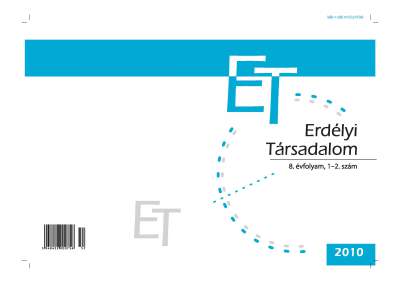Határon: magyar – román határtelepülések társadalmi-gazdasági stratégiái a határon átívelő kapcsolatok alakítására
On border: Hungarian - Romanian border-settlements social-economic strategies for forming crossborder relationships
Author(s): Bernadett Csurgó, Boldizsár MegyesiSubject(s): Social Sciences
Published by: Presa Universitara Clujeana
Keywords: border, crossborder relationship
Summary/Abstract: The paper presents three case studies conducted in Hungarian towns by the Romanian- Hungarian border: Makó, Gyula and Létavértes. Focusing on the situation of the Romanian workers in the selected settlements, it analyzes how the border and the neighboring regions appear in the every-day life and mid-term plans of these towns. Several researches proved (Németh et al 2009, Pulay 2009) that most of the Romanian immigrants work in the Central-Hungarian Region, and not in the bordering regions, where the flow of workers is sometimes opposite; as also these case studies show. There are four type of crossborder relationships among the settlements and the neighboring country, according to the case studies: (1) informal relationships; (2) formal relationships of the city councils; (3) spontaneous economic relationship; (4) cross-border economic clusters; as the paper presents whilst the first two can be found at each town, the latter two is still not built out. The settlements of the region along the border did not gain a bridging role between the two states neither for the local (employees or employers) nor for the non-local actors.
Journal: Erdélyi Társadalom
- Issue Year: 8/2010
- Issue No: 01+02
- Page Range: 29-46
- Page Count: 18
- Language: Hungarian

